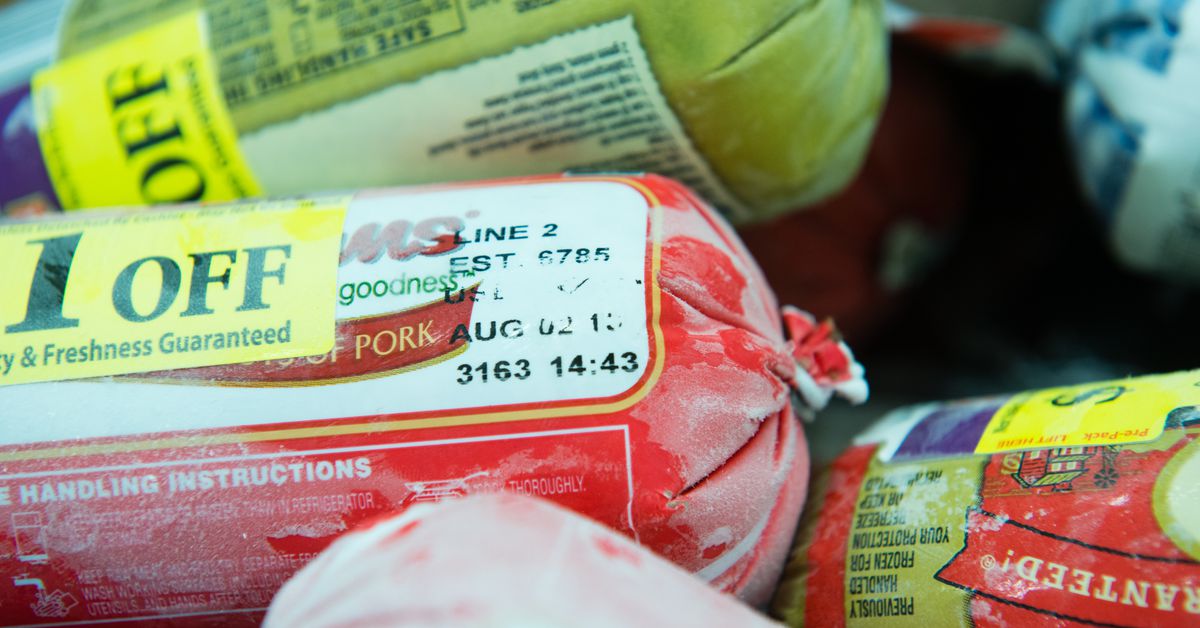The Truth About Food Labels and Expiration Dates Revealed
Conceitos essenciais
Expiration dates on food labels are misleading and do not necessarily indicate spoilage or safety concerns. The public's misunderstanding of these dates contributes to significant food waste, economic losses, and food insecurity.
Resumo
The content delves into the misconceptions surrounding expiration dates on food labels, highlighting how they contribute to massive food wastage, economic losses, and food insecurity. It emphasizes the need for education, standardized labeling, and a shift in consumer behavior towards reducing unnecessary waste.
Customize Summary
Rewrite with AI
Generate Citations
Translate Source
To Another Language
Generate MindMap
from source content
Visit Source
www.vox.com
The lie of "expired" food
Estatísticas
Forty percent of food produced in America is wasted annually.
The average American family throws out between $1,365 and $2,275 worth of food each year.
25% of fresh water in the US is used to produce uneaten food.
21% of landfill input in the US is food waste.
Per-capita increase of 50% in landfill contribution from food since 1974.
Citações
"Most packaged foods are perfectly fine for weeks or months past the date."
"The freshness date almost never corresponds to the food’s safety."
"We could buy half as much food."
"If everyone acknowledges that those foods are fine to eat... we should all be eating that."
Principais Insights Extraídos De
by Alissa Wilki... às www.vox.com 07-08-2021
https://www.vox.com/22559293/food-waste-expiration-label-best-before
Perguntas Mais Profundas
Why do state-level regulations hinder donations of past-date foods despite high levels of hunger?
State-level regulations hinder donations of past-date foods due to concerns about food safety and liability. Many states have laws that restrict the donation or sale of expired foods to food banks and other services meant to help those facing food insecurity. This restriction stems from the fear that if someone consumes expired food and falls ill, legal repercussions could follow, leading to potential lawsuits against distributors or organizations involved in donating such items. Additionally, there is a perception that providing sub-par or expired food to individuals in need is not ethical, as it may be seen as offering lower-quality products compared to what one would consume themselves. These factors contribute to the reluctance in allowing the distribution of past-date foods despite the pressing issue of hunger affecting millions across America.
Is there a risk that manufacturers manipulate expiration dates for profit?
While expiration dates on food products are primarily intended to indicate quality rather than safety, there is a potential risk that some manufacturers might manipulate these dates for profit-driven reasons. The freshness labels provided by producers often aim at ensuring consumers enjoy their products at peak taste and flavor, rather than focusing solely on safety concerns. In this context, extending shelf life through altering date labels could lead consumers to discard perfectly edible items prematurely and purchase replacements more frequently – ultimately benefiting manufacturers financially. However, it's essential to note that most producers set these dates based on quality standards rather than intentionally deceiving customers for profit gains.
How can consumers be better educated about interpreting date labels accurately?
To enhance consumer understanding regarding date labels on food products, several measures can be implemented:
Standardized Labeling: Advocating for standardized labeling practices across all states can reduce confusion among consumers regarding different terms like "best by," "sell by," or "use by." Clear guidelines will enable individuals to interpret these dates accurately.
Public Health Campaigns: Launching public health campaigns similar to those conducted in the UK under slogans like “Look, Smell, Taste, Don’t Waste” can educate people about using their senses (smell and taste) alongside label information when determining whether a product is safe for consumption.
Legislation Awareness: Increasing awareness about existing legislation related to date labeling and encouraging discussions around how these laws impact consumer behavior can empower individuals with knowledge on why certain restrictions exist.
Community Engagement: Encouraging dialogue within communities about best practices when dealing with past-date foods can foster a culture where sharing surplus items becomes normalized without stigma attached.
By combining efforts towards standardization, education through campaigns and community engagement initiatives focused on accurate interpretation of date labels will help consumers make informed decisions while reducing unnecessary waste based solely on arbitrary expiry dates provided by manufacturers.
0
